detail profile yvette eti c3 a9vant
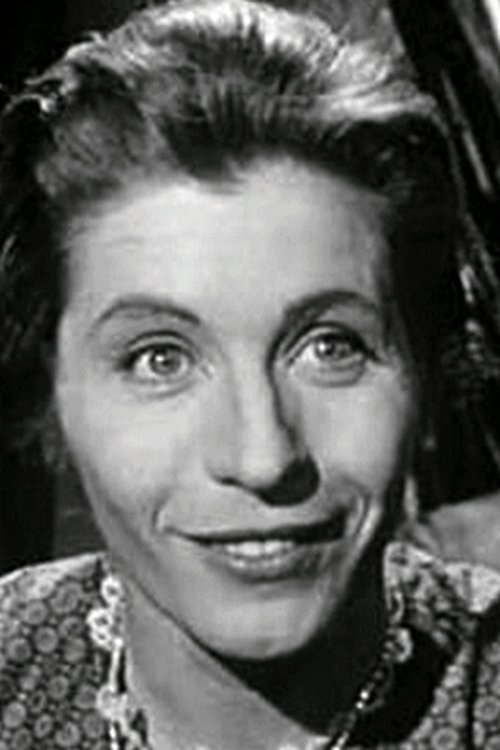
Yvette Etiévant
Yvette Etievent
atau dikenal sebagai
Riwayat Hidup
Yvette Etiévant (1922–2003) was a French actress.
She starred in Yves Robert's War of the Buttons (La Guerre des boutons) in 1962.
Source: Article "Yvette Etiévant" from Wikipedia in English, licensed under CC-BY-SA.
Info Pribadi
Peran Yang Di Mainkan Yvette Etiévant
 A lawyer hires a call girl...
A lawyer hires a call girl...Love on the Quiet 1985
A lawyer hires a call girl after learning his wife has invited her lover to move in; the husband and wife separate and the two new couples live side-by-side without issue - until an ex-boyfriend shows up and things start to go wrong.
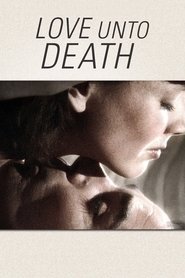 A man is haunted after waking...
A man is haunted after waking...Love Unto Death 1984
A man is haunted after waking up from his sleep, during which he was pronounced dead by his doctor.
 Claires handbag is stolen It contained...
Claires handbag is stolen It contained...Le Bon Plaisir 1984
Claire's handbag is stolen. It contained a letter written ten years previously by the man who is now the French President. In the letter, he urges his pregnant mistress to have an abortion. Claire immediately alerts the President's men. From that moment, the machinery of state swings into action.
 Using the interrogation of a US...
Using the interrogation of a US...State of Siege 1972
Using the interrogation of a US counterinsurgency agent as a backdrop, the film explores the consequences of the struggle between Uruguay's government and the leftist Tupamaro guerrillas.
 Recovering from an attempted suicide a...
Recovering from an attempted suicide a...Je T'Aime, Je T'Aime 1968
Recovering from an attempted suicide, a man is selected to participate in a time travel experiment that has only been tested on mice. A malfunction in the experiment causes the man to experience moments from his past in a random order.
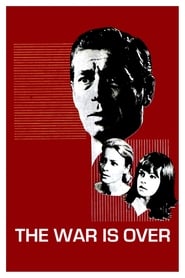 Diego is one of the chiefs...
Diego is one of the chiefs...The War Is Over 1966
Diego is one of the chiefs of the Spanish Communist Party. On his way from Madrid to Paris, he is arrested at the border for an ID check but manages to get free. When he arrives in Paris, he starts searching for one of his comrades to prevent him from going to Madrid where he could be arrested.
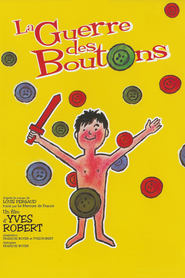 For generations two rival French villages...
For generations two rival French villages...War of the Buttons 1962
For generations, two rival French villages, Longueverne and Velrans, have been at war. But this is no ordinary conflict, for the on-going hostilities are between two armies of young schoolboys. When he is beaten by his father for having lost his buttons, the leader of the Longueverne army, Lebrac, has an idea which will give his side the advantage: next time, he and his brave soldiers will go in battle without their clothes...
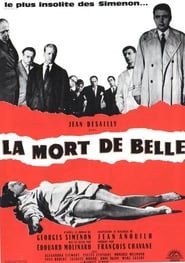 Stphane Blanchon lives a quiet life...
Stphane Blanchon lives a quiet life...The Passion of Slow Fire 1961
Stéphane Blanchon lives a quiet life in Switzerland with his wife, Christine, until a young American boarder named Belle, who was living with them, is found murdered. Despite Stéphane's innocence, the evidence points to him, and he learns that Belle harbored romantic feelings for him. Suspicions mount against him; even Christine thinks he is the culprit. Stéphane's sanity begins to crumble, and he lashes out in unprecedented ways.
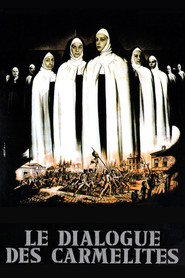 This drama about the Carmelite order...
This drama about the Carmelite order...The Dialogue of the Carmelites 1960
This drama about the Carmelite order of nuns is set during the French Revolution. A young woman seeks refuge with the Carmelites because she is terrified of dying during the upheaval. The longer she associates with the nuns the more she is transformed by their faith and devotion.
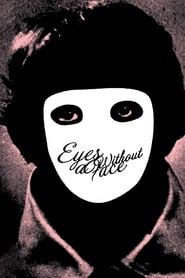 Dr Gnessier is riddled with guilt...
Dr Gnessier is riddled with guilt...Eyes Without a Face 1960
Dr. Génessier is riddled with guilt after an accident that he caused disfigures the face of his daughter, the once beautiful Christiane, who outsiders believe is dead. Dr. Génessier, along with accomplice and laboratory assistant Louise, kidnaps young women and brings them to the Génessier mansion. After rendering his victims unconscious, Dr. Génessier removes their faces and attempts to graft them on to Christiane's.
 During a stay at a roadside...
During a stay at a roadside...People of No Importance 1956
During a stay at a roadside inn, long-distance lorry driver Jean Viard meets a young woman Clothilde who works there. Their friendship soon develops into a passionate love affair, even though Jean is already married and is old enough to be Clothilde’s father. Things take a turn for the worse when Jean loses his job and his wife finds out about his affair. But Clothilde’s predicament is even more distressing...
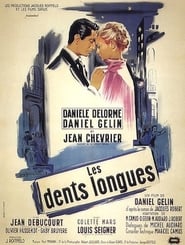 A young talented and ambitious journalist...
A young talented and ambitious journalist...Les Dents longues 1953
A young, talented and ambitious journalist, Louis heads off to try his luck in Paris. He's spotted by Walter, editor-in-chief for a major daily newspaper, who takes to him and furthers his career. What he doesn't realise is that Louis is ready to betray anyone to achieve his ends...
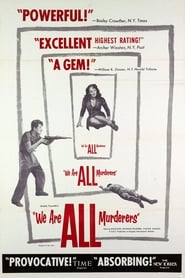 Originally titled Nous Sommes Tout des...
Originally titled Nous Sommes Tout des...We Are All Murderers 1952
Originally titled Nous Sommes Tout des Assassins, We Are All Murderers was directed by Andre Cayette, a former lawyer who detested France's execution system. Charles Spaak's screenplay makes no attempt to launder the four principal characters (Marcel Mouloudji, Raymond Pellegrin, Antoinine Balpetre, Julien Verdeir): never mind the motivations, these are all hardened murderers. Still, the film condemns the sadistic ritual through which these four men are brought to the guillotine. In France, the policy is to never tell the condemned man when the execution will occur--and then to show up without warning and drag the victim kicking and screaming to his doom, without any opportunity to make peace with himself or his Maker. By the end of this harrowing film, the audience feels as dehumanized as the four "protagonists." We Are All Murderers was roundly roasted by the French law enforcement establishment, but it won a special jury prize at the 1952 Cannes Film Festival.
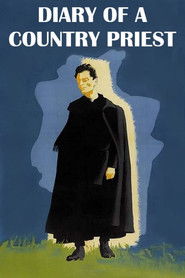 An inexperienced sickly priest shows up...
An inexperienced sickly priest shows up...Diary of a Country Priest 1951
An inexperienced, sickly priest shows up in the rural French community of Ambricourt, where he joins the community's clergy. But the locals don't take kindly to the priest, and his ascetic ways and unsociable demeanor make him an outcast. During Bible studies at the nearby girls school, he is continually mocked by his students. Then his attempt to intervene in a family feud backfires into a scandal. His failures, compounded with his declining health, begin to erode his faith.
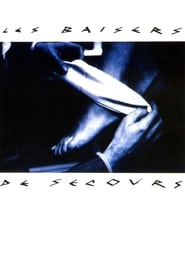 The familiar conflicts of a film...
The familiar conflicts of a film... In 19th century France Jean Valjean...
In 19th century France Jean Valjean...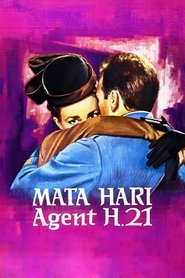 Ordered to seduce French captain and...
Ordered to seduce French captain and...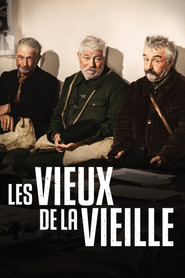 Three friends leave their village for...
Three friends leave their village for...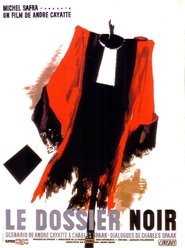 In the 1950s in a small...
In the 1950s in a small...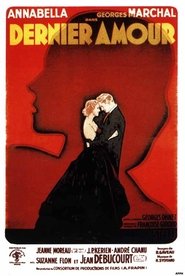 Hlne has an affair with Alain...
Hlne has an affair with Alain...